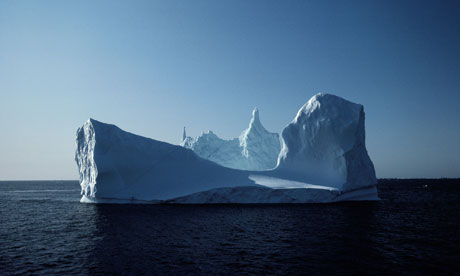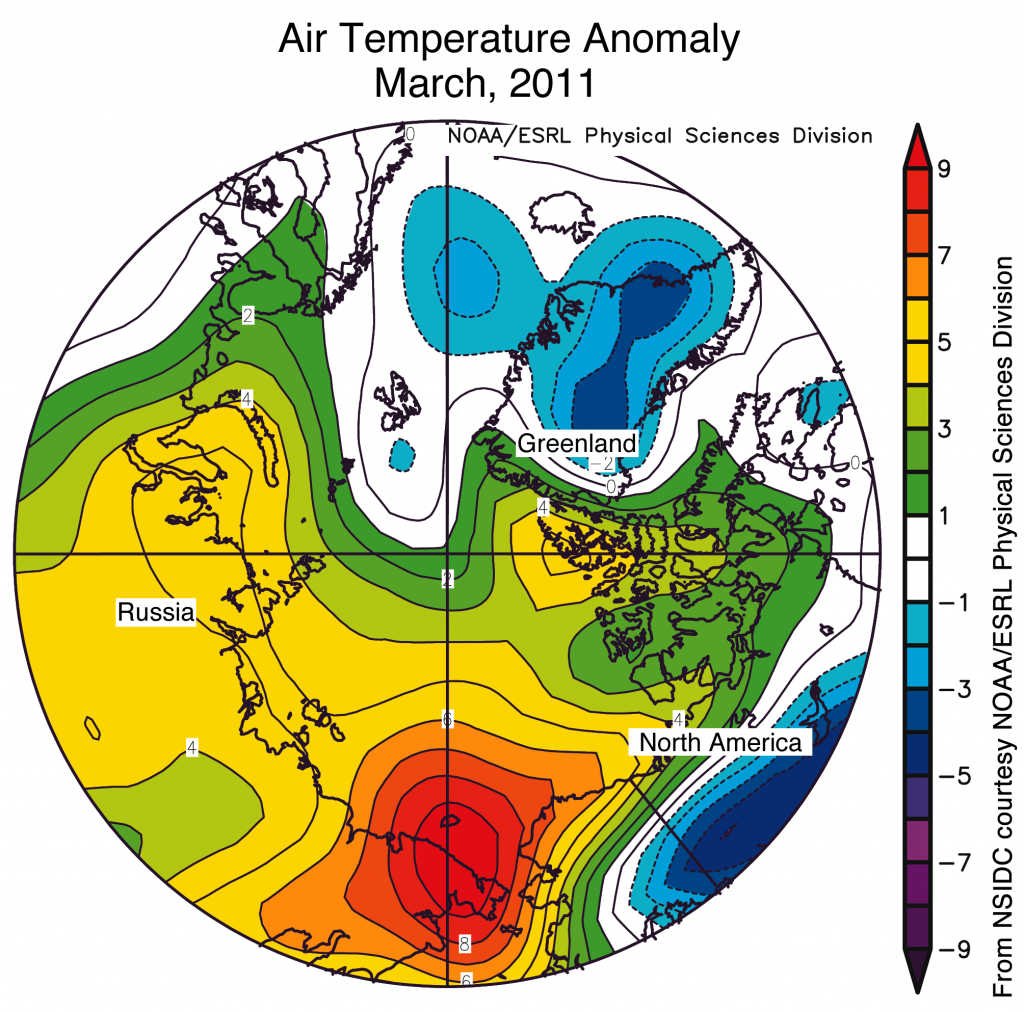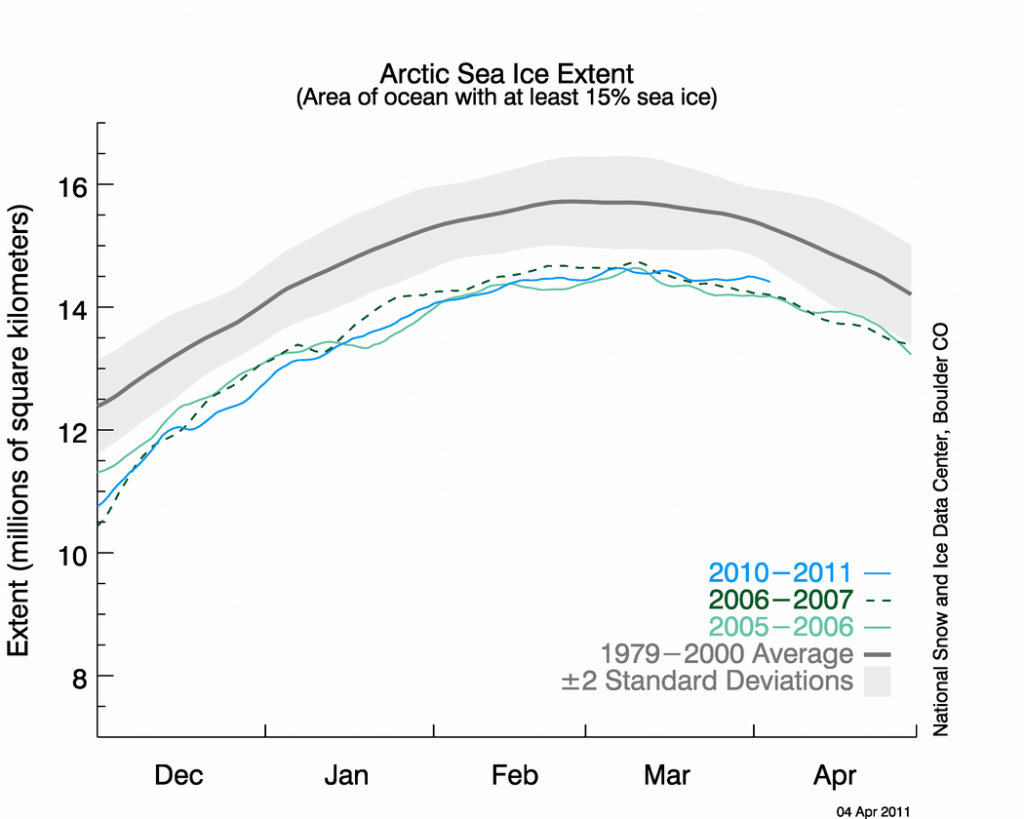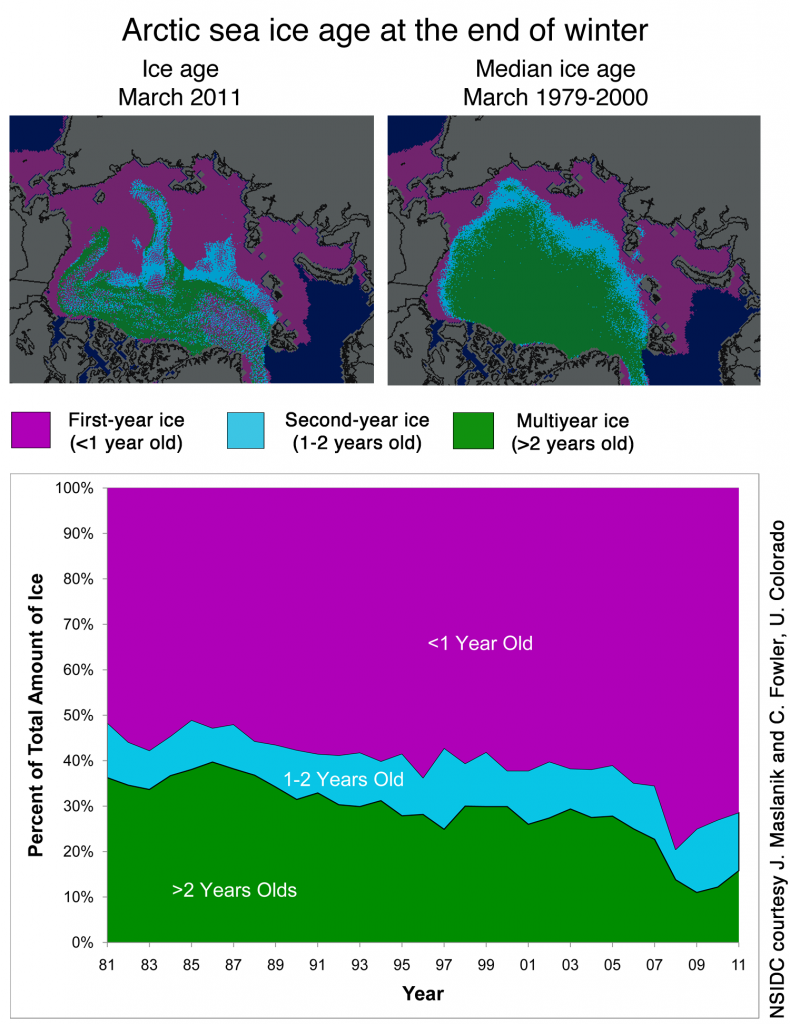Arctic Ocean freshwater will cause ‘unpredictable changes on climate’

A vast expanse of freshwater in the midst of the Arctic Ocean is set to wreak unpredictable changes on the climate in Europe and North America, new scientific analysis has shown.
The water – comprising meltwater from the ice cap and run off from rivers – is at least twice the volume of Lake Victoria in Africa, and is continuing to grow. At some point huge quantities of this water are likely to flush out of the Arctic Ocean and into the Atlantic, which could have significant impacts on the climate. Scientists say they cannot predict when this will happen though.
“This could have an influence on ocean circulation,” said Benjamin Rabe of the Alfred Wengener Institute. “It could have an influence on the Gulf Stream.”
At present, the freshwater acts as a “lid”, preventing the warmer salty water below from meeting the ice, which would melt if the two mixed, according to Rabe. But while it is currently stable, this situation is likely to change as atmospheric circulation patterns shift, and as greater quantities of meltwater spill into the “lake”. There were signs of an atmospheric change in 2009 that could have precipitated such an outflow, but that episode did not last.
Laura de Steur, an oceanographer at the Royal Netherlands Institute for Sea Research, said: “The volume of water discharged into the Arctic Ocean, largely from Canadian and Siberian rivers, is higher than usual due to warmer temperatures in the north causing ice to melt. Sea ice is also melting quickly – another new record low for ocean area covered was recently documented by the National Snow and Ice Data Centre, adding even more freshwater to the relatively calm Arctic Ocean.”
She added: “Sea ice that is thinner is more mobile and could exit the Arctic faster. In the worst case, these Arctic outflow surges can significantly change the densities of marine surface waters in the extreme North Atlantic. What happens then is hard to predict.”
Such an outflow would probably have a measurable impact on the “conveyor belt” or thermohaline circulation, a system of deep ocean and wind-driven currents, including the Gulf Stream, which carries heat from the tropics, said Rabe. An influx of dense, cold freshwater could slow the conveyor belt. If the effect were marked, it would be felt in the form of a change of weather in Europe and America, he said. Europe could find itself cooling, particularly around the Western edges, as the circulations tend to bring warmer air to the continent.
But, he said, it was impossible yet to say whether any such effect would be dramatic or slight. Some climate models predict a 20% weakening of the current by the century’s end.
Detlef Quadfasel, of Hamburg University’s climate centre, warned that there was a chance changes in the system could be abrupt, occurring over a decade or two, but that more gradual change would be expected.
The findings are part of Project Clamer, a collaboration of 17 institutes in 10 European countries that is synthesising research from nearly 300 EU-funded projects over the past 13 years that concern climate change and Europe’s waters, and the Baltic and Black Seas.
Freshwater inflow from rivers could also affect the Baltic Sea, one of the biggest brackish-water ecosystems in the world, according to Thomas Neumann, of Germany’s Leibnitz-Institute for Baltic Sea Research. Its salinity is controlled by the amount of freshwater flowing off the surrounding land, as well as how much water is exchanged with the North Sea. If the salinity lowers further, this could have a harmful effect on the species that live there. (Guardian)




Commenting rules and guidelines
We value the thoughts and opinions of our readers and welcome healthy discussions on our website. In order to maintain a respectful and positive community, we ask that all commenters follow these rules.